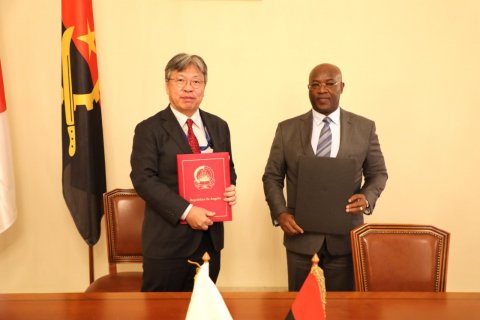The rules for preventing and combating money laundering, terrorist financing and the proliferation of weapons of mass destruction are set out in a notice dated March 22 and made public this Wednesday.
The directive from the National Bank of Angola (BNA) determines that financial institutions must obtain and retain information whenever, in person or remotely, a customer intends to carry out occasional transactions, the amount of which is greater, in national currency or another, than the equivalent of 15,000 dollars.
Compliance with the rule must occur "regardless of whether the transaction is carried out through a single operation or several operations that appear to be related".
In the directive, the central bank also determines that financial institutions must not open and maintain anonymous accounts or under clearly fictitious names, within the scope of preventing and combating money laundering.
In the field of non-profit organisations, the Directive stipulates that financial institutions must establish appropriate "enhanced due diligence" procedures, with procedures such as details on geographical location, organizational structure, nature of donations and volunteering and nature of funds and expenditure.
The BNA notice, which justifies it with the need to adjust the regulatory framework on rules and procedures for preventing and combating money laundering, also establishes that financial institutions must carry out risk assessments at a frequency of no less than 12 months.
The periodicity of this assessment, determined by the central bank, can be increased to 24 months whenever the nature, size and complexity of the activity justify it.
In the directive, Banco de Angola also establishes that financial institutions must create information mechanisms on policies, procedures and any other management and mitigation measures for identified risks, for relevant business units and/or employees.
In light of this normative instrument, banks must also ensure that information relating to processes related to politically exposed persons (PPE) is communicated to their employees, for whom it is relevant.
Banks "must cooperate and exchange information among themselves" for the purposes of preventing money laundering and terrorist financing and this must be shared with the Financial Information Unit and the BNA.
The legal instrument, signed by the governor of the BNA, Manuel Tiago Dias, also defines that the beneficiary financial institutions must adopt appropriate measures to identify cross-border electronic transfers, which present insufficient necessary information about the payer or the beneficiary.
Specific, independent and confidential channels must be created by banks to adequately ensure the reception, processing and archiving of communications of irregularities related to possible violations of the law to prevent and combat money laundering.
The notice also determines a well-founded assessment of the reliability and credibility of employees that financial institutions intend to appoint to positions of greater sensitivity and risk in carrying out the activity, establishing sanctions in case of infractions.







